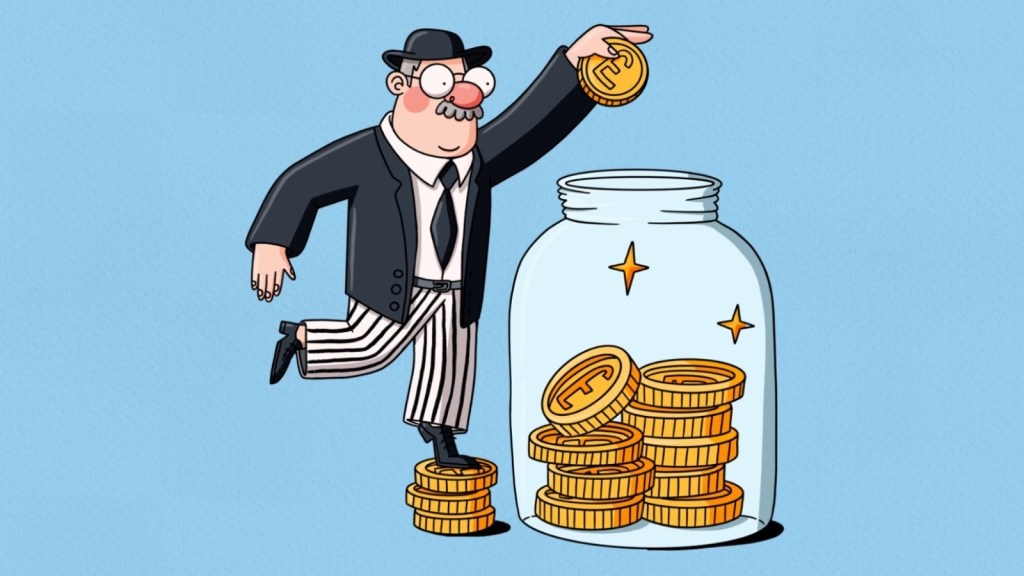HMRC Earns £900 Million in Interest from Late Tax Payments
HM Revenue & Customs (HMRC) has collected £916 million in interest since the onset of the pandemic from individuals failing to pay their taxes on time.
Research conducted by The Sunday Times Money reveals that interest accrued from late self-assessment payments has surged from £113 million in the 2020-21 tax year to £414 million in 2023-24, pushing the total over the last four years close to £1 billion. This figure does not include fines levied on individuals who submitted their returns late.
This increase is attributed to rising interest rates coupled with the freezing of income tax thresholds, which has resulted in more taxpayers entering higher income brackets, necessitating tax returns and potentially leading to extra tax liabilities or the repayment of child benefits.
Taxpayers who delay paying their tax bills incur interest at a rate set at the Bank of England’s base rate plus 2.5 percentage points, currently amounting to 7.25 percent, with interest calculated daily.
Conversely, individuals who have overpaid their taxes and are owed money by HMRC will receive interest at a rate of the Bank rate minus 1 percentage point, which is presently at 3.75 percent.
Upcoming adjustments mean HMRC will further benefit next year, with a planned increase of 1.5 percentage points to the late payment rate. Should the Bank rate maintain its current level of 4.75 percent, the new rate would rise to 8.75 percent, predicted to generate an additional £1.2 billion by the fiscal year 2029-30.
Chris Etherington of RSM UK highlighted, “Imposing interest rates tied to the base rate, plus additional charges, has proven to be a lucrative strategy for the Treasury. It underscores the importance for taxpayers to settle their obligations promptly.”
Who Contributes to HMRC’s Revenue Boost?
The tripling of the interest collected by HMRC since 2021, as revealed through a Freedom of Information request, is mainly due to the substantial increase in the Bank of England’s base rate. To combat skyrocketing inflation, the Bank rate was raised 14 times, elevating it from a historic low of 0.1 percent in December 2021 to 5.25 percent in August 2023, remaining steady until the latest reductions. Consequently, HMRC’s late payment interest rate climbed from 2.6 percent to 7.75 percent.
Additionally, a growing number of taxpayers are now required to file returns and pay higher taxes to HMRC. This includes self-employed individuals responsible for their tax payments, those earning over £150,000 annually, and certain workers with additional income or high savings interest. Moreover, pensioners, due to the steady personal income tax allowance of £12,570 since 2021 amidst rising state pensions, find themselves needing to file tax returns if their total income exceeds this threshold.
Self-assessment tax returns for the 2023-24 tax year must be submitted to HMRC by October 31 for paper files or by midnight on January 31 for online submissions. Missing deadlines incurs a £100 fine immediately. If still unfiled after three months, an additional £10 per day is charged for up to 90 days. A late return after six months incurs the greater of £300 or five percent of any tax owed, with a repeat penalty at 12 months.
According to HMRC, approximately 1.1 million taxpayers failed to meet the January filing deadline for the 2022-23 tax year.
Tax bills are also due by midnight on January 31. If this deadline is missed, interest starts accruing on the outstanding amount from February 1, regardless of whether a payment plan is in place with HMRC.
Self-employed individuals making advance payments must also meet their deadlines. Although penalties for missing advance payment deadlines do not apply, interest will still accumulate.
These charges can accumulate rapidly.
“Many taxpayers either forget to file or struggle to grasp the rules or deadlines,” remarked Waqar Shah of Kingsley Napley. “Some cannot afford their bills, particularly those running businesses facing cash flow issues. Others may postpone payments due to tax disputes with HMRC.”
Reasons Behind Late Payments
Nimesh Shah from Blick Rothenberg noted that changes in regulations during the COVID pandemic may have added to the confusion surrounding tax deadlines. HMRC extended the filing and payment deadlines for the 2019-20 and 2020-21 tax years, assuming many would miss the earlier dates. However, taxpayers still needed to remit an estimated amount by the January 31 deadline to avert interest penalties.
“This was poorly managed,” Shah stated. “Individuals felt they could avoid tax payments until their returns were filed, unaware they would incur interest charges.”
Impending Costs for Late Payments
Next year, failing to settle taxes punctually will become even more costly. The recent budget revealed that from April 6, the interest on late payments will increase to the Bank rate plus 4 percent.
For instance, if a taxpayer has a £5,000 tax bill due January 31, they would incur approximately £98.33 in interest for a 100-day delay at today’s rate of 7.25 percent. Should the rate rise to 8.75 percent, the cost would escalate to £118.66 for the same delay.
If the tax obligation remains unpaid for more than 30 days, an additional fine of 5 percent of the owed amount is imposed. An additional 5 percent penalty applies at six months and again at one year overdue.
Shah criticized the government’s rationale for raising the late payment rate, arguing that it fails to incentivize timely payments and instead burdens those who struggle financially.
Increasing the rate serves as an easy revenue-raising method, particularly as HMRC faces scrutiny to address its budget. The estimated tax gap—the disparity between owed taxes and actual payments—stands at £39.8 billion according to HMRC estimates.
HMRC responded, stating, “The interest we charge and pay is equitable, ensuring that overpaying to access higher interest rates isn’t incentivized and that timely taxpayers are not placed at a financial disadvantage by late payers.”
Assistance for Those Unable to Pay
Taxpayers who are having difficulty covering their tax bills are encouraged to reach out to HMRC promptly, as they may qualify for a Time to Pay plan, allowing repayment in manageable installments. Monthly payments are typically capped at half of the taxpayer’s remaining income after essential expenses.
Failure to maintain agreed repayments without valid reasons may result in HMRC engaging third-party debt collectors.




Post Comment